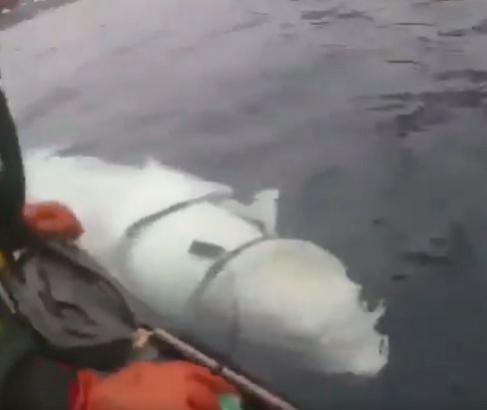An overly friendly Beluga whale suspected of being a Russian spy was spotted by Norwegian fisherman off the coast of Norway a few days ago.
The whale had a harness and a GoPro camera strapped on to it. It was hungry and wandered near the fishermen hoping that they would feed it something. The whale began swimming very close to the fishing boat and that was when the fishermen noticed it.

The fishermen, who are from the Inga village in Norway, freed the aquatic animal of its harness and equipment. The harness, which had a strap for the GoPro camera, also had a label saying that it originated from St Petersburg in Russia, reports BBC. This led many to think that the whale is a spy for Russia.
In addition to this, a Russian naval base in the Murmansk district, about 415 kilometers away from where the whale was found, added to the suspicion.
Speaking to BBC, Professor Audun Rikardson, a marine biologist, said that according to a Russian colleague of his, the equipment doesn't look Russian. He said, "A Russian colleague said they don't do such experiments, but she knows the navy has caught belugas for some years and trained them - most likely it's related to that."
He added that the harness of the whale was tightly tied around its head, in front of its pectoral fins.
Professor Rikardson, who is an expert in maritime life, said that the whale was coming up to the boat for a few days before the fishermen removed its harness. Now that it is free, the next task for the whale is to adjust to the natural food habitat as well as find a group for itself. Or else, it will keep coming back to the boat.
Russia denies deploying the beluga whale as a spy
Colonel Viktor Baranets of the Russian Army has rubbished the claims. Speaking to a news broadcaster in Russia, the Colonel said, "If we were using this animal for spying do you really think we'd attach a mobile phone number with the message 'please call this number'?"
He added that the country does possess combat dolphins in their base in Crimea. The Colonel said, "In Sevastopol (in Crimea) we have a centre for military dolphins, trained to solve various tasks, from analysing the seabed to protecting a stretch of water, killing foreign divers, attaching mines to the hulls of foreign ships."

















